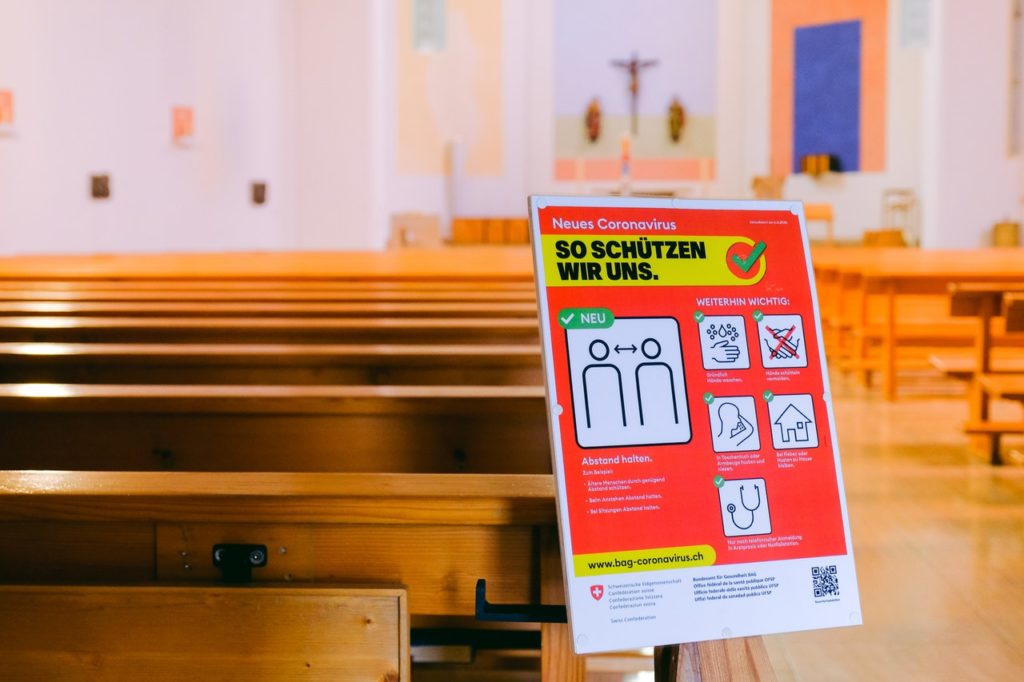
By @johnvinod | February 26, 2021
Please begin today by reading from Joel 2: 28-32, which is the closing section of Joel chapter two. We saw in yesterday’s post that after their repentance, God blesses and satisfies his restored people. Having established this outward visible blessing, Joel now prophesized the oncoming spiritual blessing and renewal, which constitutes the true restoration.
This spiritual renewal will come in the form of something unprecedented and powerful: “I will pour out my spirit on all flesh”! This is unlike what is described in the previous sections of this chapter. Those events came to pass in Israel during Joel’s time. This promise of the Spirit, on the other hand, is a prophecy in the more distant future and Joel links it with an apocalyptic event, “the day of Lord” (vs. 30-32). Notice that the prophecy is preceded by “Then afterwards” (v. 28) and “in those days” (v. 29). This is a common parallelism that Hebrew prophets and poets often employed for rhetorical effect and to emphasize the point they were making. And the point in Joel’s case is that it will come to pass sometime in the future.
The Spirit is understood as God’s Spirit, the Holy Sprit in the New Testament. The primary meaning of the outpouring of the Spirit on his people is a divinely inspired spiritual ecstasy which enables them to find a transient prophetic fervor and make prophetic utterances. We can also find examples of this in 1 Samuel 10:10 and 19:24 in the time of Judges in Israel. God had used this phenomenon earlier also with seventy elders of Israel under Moses’ leadership for the purpose of endorsing their calling and leadership:
Then the Lord came down in the cloud and spoke to him, and took some of the Spirit that was on him and put it on the seventy elders; and when the Spirit rested upon them, they prophesied. But they did not do so again. (Numbers 11: 25 NRSV).
However, quite unlike the previous occurrences, in Joel’s prophecy of 2: 28-29, notice here the promise is for “all flesh” irrespective of their age, leadership, social status, or gender. Primarily, it was meant for the people to whom Joel prophesied and their descendants. However, in God’s economy of salvation the promise has been extended to the whole humankind irrespective of our race, class, gender, or status in society.
The outpouring or pour out means to cause to flow freely and implies that God will give the Spirit in abundance, as he always does, without reservation.
The Apostle Peter unmistakably applied the fulfilment of Joel’s prophecy to the events of the outpouring of the Holy Spirit on the Day of Pentecost. Before his ascension, Jesus Christ had promised the Holy Spirit to his disciples in Luke 24:49 and Acts 1: 8. So, in Acts 2 when the disciples along with the Twelve Apostles received the promised Holy Spirit, they were ecstatic and filled with a divine prophetic passion. Peter, one of the Twelve, addressed the astonished crowd of thousands who had gathered in Jerusalem saying:
But this is what was uttered through the prophet Joel: “‘And in the last days it shall be, God declares, that I will pour out my Spirit on all flesh, and your sons and your daughters shall prophesy, and your young men shall see visions, and your old men shall dream dreams; even on my male servants and female servants in those days I will pour out my Spirit, and they shall prophesy. And I will show wonders in the heavens above and signs on the earth below, blood, and fire, and vapor of smoke; the sun shall be turned to darkness and the moon to blood, before the day of the Lord comes, the great and magnificent day. And it shall come to pass that everyone who calls upon the name of the Lord shall be saved.’ (Acts 2: 15- 21 ESV).
However, this was just the beginning of the fulfillment of the prophecy of a spiritual renewal that Joel prophesied. It did not cease with the Day of Pentecost. In the book of Acts and in the rest of the New Testament, the outpouring continued throughout Israel and then in the rest of the world until this day.
This Spirit, the Spirit of Pentecost, is the Spirit of missions. He is the Spirit of transformation of lives, institutions, and cultures. The renewal the Spirit of missions creates is evident throughout the world which has experienced the outpouring of the Spirit down the centuries. And God’s Spirit is still moving around the globe in the most unanticipated ways and in the most unexpected places and among the most amazing people groups, just as it was prophesied. The threefold signs of the spiritual renewal are evident wherever the Spirit is outpoured.
People are prophesying, that is, bringing God’s word to those unreached people groups who have never had the opportunity to hear it until now. Praise God that this noble calling is no longer restricted to a privileged few from a certain social class or people of certain color, but God’s Spirit is using ordinary people for the proclamation of the Word.
People are dreaming, that is, dreaming of being and becoming what they have never been before. Dreaming and finding an identity as God’s own people, loved, lifted, and dignified. Dreaming of breaking off slavery, colonialism, and the fetters of oppression of all sorts throughout all cultures. And this is made possible today by the Spirit of God.
People are visioning, that is, seeing the possibilities and hoping for a liberated future that they have never envisioned before. They are reassured by the presence of the Spirit that it is now possible for their dreams and visions to become a reality by the power of the Almighty God who delights to abide with them. Praise be to the Holy Spirit! Despite the constant bad news of the pandemic and devastation, there is an extensive outpouring of the Holy Spirit in our day and age. Are you aware of it? Are you part of it? Does this excite you to participate in it?








